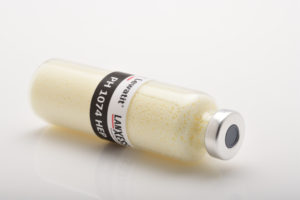New applications in the bioprocess and pharmaceutical industry
IX process more efficient than precipitation processes
by Suman Gupta

Cologne, December, 2020 – Specialty chemicals company LANXESS is extending its portfolio of products in the consumer care segment to include the new Lewatit PH 1074 HEP. In addition to the decolorization of fermentation broths and sugar, it is particularly suited to the purification and intermediate storage of heparin. As one of the leading manufacturers of ion exchangers, LANXESS intends to use this innovative product to tap new customers in the pharmaceutical and bioprocessing industry and further strengthen its market position.
The macroporous, strongly basic anion exchange resin that meets food quality standards is based on a cross-linked polyacrylate. It has a special pore structure and resin matrix, which has been exclusively developed for the capture of highly molecular compounds.
Lewatit PH 1074 HEP is suitable for the treatment and purification of products derived from biomass, as it supports the reliable capture and removal of organic substances with a high molecular weight. This means that liquid sugar syrups or complex process solutions such as fermentation broths, for example, can be purified and treated.
Ion exchange results in high heparin yield, activity and purity
Sugar polymer heparin is used in medicine to prevent blood coagulation and venous thrombosis and is also applied as anticoagulant, for example, during heart surgery and dialysis. Heparin is typically purified with ion exchange resins, as this produces a higher yield, activity and purity of heparin and similar end products in comparison with precipitation processes for purification.

Photo: LANXESS AG

